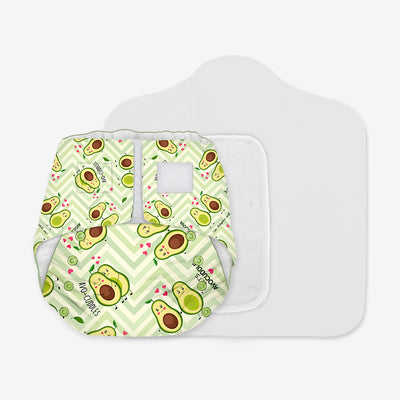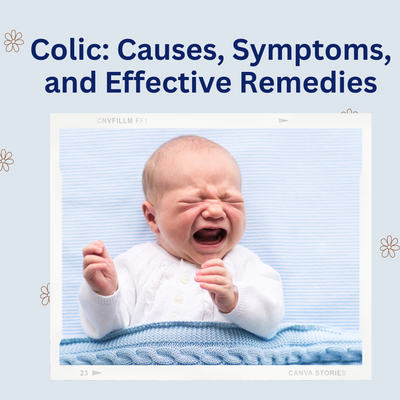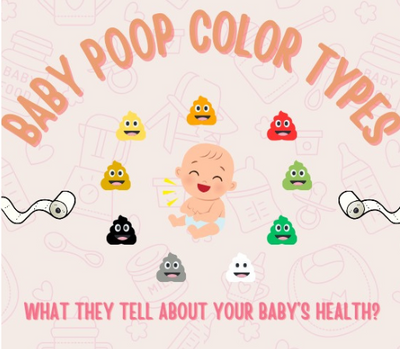Breastfeeding vs. Formula Feeding: Debunking Myths and Making an Informed Choice

Breastfeeding vs. formula feeding – a topic that has sparked heated debates and endless discussions among parents. As a new parent or expecting one, it's natural to be overwhelmed by the wealth of information and conflicting advice out there. But fear not! In this comprehensive guide, we aim to debunk common myths and help you make an informed choice that suits your unique circumstances and preferences. We'll explore the benefits of breastfeeding, from the invaluable bonding experience to the countless health advantages for both mother and baby. On the other hand, we'll also shed light on formula feeding, highlighting its convenience and accessibility for moms who may not be able to breastfeed. By presenting the facts, dispelling misconceptions, and emphasizing the importance of individual choice, we hope to empower you to make the best decision for your family. So, let's dive in, separate fact from fiction, and embark on this journey of understanding and making an informed choice when it comes to breastfeeding vs. formula feeding.
The Benefits of Breastfeeding
Breastfeeding is widely recognized as the gold standard of infant nutrition, providing numerous benefits for both mother and baby. Firstly, breastfeeding promotes a strong bond between mother and child. The physical closeness and skin-to-skin contact during breastfeeding create a deep emotional connection, fostering a sense of security and trust. Additionally, breastfeeding releases hormones like oxytocin, which can enhance maternal well-being and reduce stress levels.
From a health perspective, breast milk is a nutritional powerhouse, containing all the necessary nutrients, antibodies, and enzymes required for optimal development and immune function. It is perfectly tailored to meet the unique needs of a growing infant, providing protection against various illnesses, allergies, and infections. Breastfed babies have a lower risk of respiratory infections, ear infections, gastrointestinal issues, and even chronic conditions like asthma and obesity later in life.
Breastfeeding also offers long-term benefits for mothers. It promotes uterine contractions, which in turn reduces postpartum bleeding and supports the recovery process. It can also help with weight loss, as breastfeeding burns extra calories. Moreover, breastfeeding has been linked to a lower risk of developing breast and ovarian cancers, as well as osteoporosis in later stages of life. The act of breastfeeding itself releases hormones that promote relaxation and bonding, contributing to overall maternal well-being.
The Benefits of Formula Feeding
While breastfeeding is often hailed as the ideal choice, formula feeding has its own set of advantages. Formula feeding provides a convenient alternative for mothers who are unable to breastfeed due to medical reasons or personal circumstances. It allows other family members to participate in feeding and provides flexibility, allowing mothers to return to work or have a break from breastfeeding if needed
Modern infant formulas are carefully formulated to provide a balanced combination of nutrients, vitamins, and minerals, designed to mimic the composition of breast milk as closely as possible. This ensures that babies who are formula-fed receive adequate nutrition for healthy growth and development. Formula feeding also allows parents to monitor and control the exact amount of milk their baby consumes, which can be helpful in certain situations
Another benefit of formula feeding is that it eliminates concerns about maternal diet and medication use. Breastfeeding mothers need to be mindful of what they eat and drink, as certain substances can pass into breast milk and potentially affect the baby. Formula feeding removes this restriction, giving mothers more freedom and peace of mind.
It's important to note that while formula feeding is a viable option, it does not provide the same immune-boosting and disease-fighting properties as breast milk. Breast milk is uniquely designed to protect infants from infections and strengthen their immune systems. However, formula-fed babies can still thrive and lead healthy lives with proper nutrition and care.
Common Myths About Breastfeeding
Misinformation and myths surrounding breastfeeding can lead to confusion and make it difficult for parents to make an informed choice. Let's debunk some of the common myths surrounding breastfeeding:
- Myth: Breastfeeding is painful and difficult.
- Fact: While some women may experience initial discomfort or challenges, breastfeeding should not be painful. Seek support from lactation consultants or breastfeeding support groups to address any difficulties and ensure a positive breastfeeding experience.
- Myth: Breast milk is not enough to satisfy a hungry baby.
- Fact: Breast milk is perfectly suited to meet the nutritional needs of infants. It is easily digestible and provides the ideal balance of nutrients, even as a baby's needs change over time.
- Myth: Breastfeeding prevents moms from having a social life or returning to work.
- Fact: Breastfeeding can be compatible with a social life and work commitments. With proper planning and support, mothers can continue breastfeeding while maintaining their personal and professional lives.
Common Myths About Formula Feeding
Formula feeding also faces its fair share of myths and misconceptions. Let's address some common myths surrounding formula feeding:
- Myth: Formula-fed babies are not as healthy as breastfed babies.
- Fact: While breast milk offers unique health benefits, formula-fed babies can still grow and thrive when provided with proper nutrition and care. Modern formulas are formulated to meet the nutritional needs of infants.
- Myth: Formula feeding leads to obesity.
- Fact: Obesity is a complex issue influenced by various factors, including genetics and lifestyle. Formula feeding itself does not cause obesity. It's essential to focus on promoting healthy eating habits and an active lifestyle for all children, regardless of their feeding method.
- Myth: Formula feeding is less bonding than breastfeeding.
- Fact: Bonding with a baby is not solely dependent on the feeding method. Formula feeding can also provide opportunities for bonding through eye contact, soothing, and cuddling. Bonding is a multi-faceted process that extends beyond feeding.
Factors to Consider When Choosing Between Breastfeeding and Formula Feeding
When making a decision between breastfeeding and formula feeding, it's crucial to consider various factors that are unique to your situation.
- Maternal Health: Consider any medical conditions or medications that may affect breastfeeding. Consult with your healthcare provider to understand the implications and explore alternatives if necessary.
- Lifestyle and Work: Evaluate your lifestyle and work commitments. Breastfeeding requires time and dedication, while formula feeding offers more flexibility for mothers who need to return to work or have other responsibilities.
- Support System: Assess the level of support available to you. Breastfeeding can pose challenges, particularly during the initial stages. Having a supportive partner, family, or access to lactation consultants can make a significant difference.
- Personal Preferences: Consider your personal beliefs, values, and comfort level. Some mothers may feel strongly about breastfeeding, while others may prefer the convenience and accessibility of formula feeding. It's essential to choose what feels right for you and your baby.
Making an informed decision: Considering the advantages and disadvantages.
Choosing between breastfeeding and formula feeding is a personal decision that should be based on your unique circumstances and preferences. There is no universal solution, and what may be effective for one family may not be suitable for another. To make an informed decision, it can be helpful to weigh the pros and cons of each method.
Breastfeeding offers numerous benefits such as bonding, immune support, and long-term health advantages for both mother and baby. However, it can require a significant time commitment, may have initial challenges, and is not feasible for everyone.
On the other hand, formula feeding provides convenience, flexibility, and accessibility for mothers who may not be able to breastfeed or prefer an alternative. It allows others to participate in feeding and provides precise control over the volume consumed. However, it does not offer the same immune-boosting properties as breast milk.
Ultimately, the decision should be based on what works best for you and your baby. Remember, there is no definitive correct or incorrect decision. What matters most is that your baby is receiving adequate nutrition, love, and care.
Tips for Successful Breastfeeding
If you choose to breastfeed, here are some tips for a successful breastfeeding journey:
- Seek Support: Reach out to lactation consultants, support groups, or breastfeeding peer counselors for guidance and support. They can provide valuable advice and help troubleshoot any challenges you may encounter.
- Establish a Routine: Establishing a breastfeeding routine can help both you and your baby. Try to nurse on demand and establish a consistent feeding pattern that works for both of you.
- Take care of yourself: Remember to make self-care a priority. Eat a healthy diet, stay hydrated, rest when you can, and ask for help when needed.
- Learn Proper Latch Techniques: Ensuring a correct latch is crucial for a comfortable and effective breastfeeding experience. Seek guidance from a lactation consultant to ensure your baby is latching properly.
- Stay Patient and Persistent: Breastfeeding can be challenging at times, especially in the beginning. Stay patient, be persistent, and trust your body's ability to nourish your baby.
Tips for Successful Formula Feeding
For those who choose formula feeding, here are some tips for a successful experience:
- Choose the Right Formula: Consult with your pediatrician to select the most suitable formula for your baby. Consider factors such as allergies, digestive issues, and any specific dietary requirements.
- Follow Instructions: Read and follow the instructions on the formula packaging carefully. Proper preparation and handling of formula are essential for your baby's health and safety.
- Bonding through Feeding: Even though you are using formula, feeding time can still be a bonding experience. Make eye contact, talk to your baby, and enjoy the closeness during feeding.
- Sterilize Equipment: Ensure that all bottles, nipples, and other feeding equipment are properly sterilized. This practice helps ensure cleanliness and minimizes the risk of infection.
- Engage with Your Baby: Use feeding time as an opportunity to engage with your baby. Talk, sing, and cuddle while feeding to promote bonding and emotional connection.
Support and Resources for Breastfeeding and Formula Feeding
Whether you choose breastfeeding or formula feeding, it's essential to have access to support and resources. Here are some valuable sources of support:
- Lactation Consultants: Lactation consultants are trained professionals who specialize in breastfeeding support. They can provide personalized guidance, address challenges, and offer encouragement.
- Breastfeeding Support Groups: Joining a breastfeeding support group can connect you with other breastfeeding mothers who can share experiences, tips, and advice.
- Online Communities: Online forums and communities dedicated to breastfeeding or formula feeding can be excellent sources of support and information. Connect with other parents who are facing similar experiences.
- Pediatricians and Healthcare Providers: Your child's pediatrician and healthcare providers can offer guidance, answer questions, and provide resources related to breastfeeding and formula feeding.
- Family and Friends: Seek support from your partner, family, and friends. Share your concerns, ask for help, and lean on your support network during this journey.
Choosing What's Best for You and Your Baby
The debate between breastfeeding and formula feeding has been ongoing for years, and there is no one-size-fits-all answer. Both methods have their own advantages and challenges, and the decision ultimately comes down to what works best for you and your baby.
Breastfeeding offers a unique bond between mother and child, provides numerous health benefits, and is a cost-effective option. On the other hand, formula feeding offers convenience, flexibility, and allows other caregivers to participate in feeding duties.
When making your decision, consider the benefits of breastfeeding for both the baby and the mother, the advantages of formula feeding, the differences in nutritional content, and the factors specific to your situation. Seek support from healthcare professionals, lactation consultants, and other experienced parents to help guide you through the decision-making process.
Remember, there is no right or wrong choice. What matters most is that your baby is nourished, loved, and cared for. Whether you choose to breastfeed, formula feed, or even combine both methods, trust your instincts, listen to your baby's cues, and enjoy the journey of parenthood.














